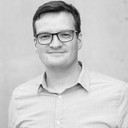Open, Standardized and Interoperable: How Gaia-X will Enable Competition and Boost the Economy
“If value creation migrates to software, the cloud becomes more important,” says Dr. Oliver Mauss from plusserver, in interview with Nils Klute from EuroCloud.

© PhonlamaiPhoto| istockphoto.com
In this interview, Dr. Oliver Mauss, the CEO of the plusserver group, talks to Nils Klute from EuroCloud about open source, the Sovereign Cloud Stack and what Gaia-X and roaming have in common.
Nils Klute: Mr Mauss, what does the plusserver group do?
Oliver Mauss: We support SMEs on their digital transformation journey. Our customers are well-known and often owner-managed companies that have reached a certain size, want to digitalize further with the support of the cloud, and are able to make decisions quickly.
Klute: And what do SMEs opt for?
Mauss: We migrate, modernize and operate their cloud infrastructure – so that the companies can concentrate on their core business. We deliver IT strategy, know-how, infrastructure and technology. Anyone who wants to automate processes, digitalize products, and realize new services needs the cloud.
Klute: How is the cloud being received among SMEs?
Mauss: The demand is increasing in Germany, but companies are critical, watching closely, wanting to understand the benefits and to avoid mistakes. Take mechanical engineering as an example: Companies have recognized that they can manufacture more effectively and realize new business models based on data. With an understanding of the opportunities, it then becomes possible for the cloud to move into factories.
Klute: Speaking of opportunities, how has the pandemic affected this?
Mauss: The digitalization push has been good for Germany – and everywhere else as well. Even if the switch to working from home was a one-off transformation wave, we are seeing long-term demand elsewhere. Be it in schools, in the government, or in the utilities and healthcare industries – the public sector is requesting cloud services much more frequently today than in the past. In the public sector, digital sovereignty is playing an increasingly important role.
Klute: Gaia-X is also all about sovereign cloud services. Why is plusserver involved in the initiative?
Mauss: We initially got into a dialogue with the former Gaia-X project group on the subject of the Sovereign Cloud Stack (SCS). The SCS is, in a sense, a cloud operating system that is completely data- and technology-agnostic as a result of its open-source nature. Together with other companies and institutions, we launched a project on this topic, which we presented to the Federal Ministry for Economic Affairs and Energy (BMWi) in 2019. The response was unanimously positive: The wish was to integrate our work more meaningfully into Gaia-X. We then became a founding member of the Gaia-X Association. An application has recently been submitted to the BMWi for funding for the SCS.
Klute: What role does the SCS play for Gaia-X?
Mauss: The ambition of Gaia-X is to provide information in a secure, sovereign and distributed way. The open SCS does account precisely for this – right down to the bare metal in the data centres of the participating providers. It is open and scalable, and it already completely integrates all the components that a cloud provider needs. In addition, there will be a certification that guarantees users that the implementation they are using is completely compliant with the standard.
Klute: Meaning that it’s practical?
Mauss: Regardless of which provider companies later want to use in order to manage and operate their services and data, SCS technology guarantees that services are portable and can also be distributed across several providers. The transparency of being open source ensures that there are no unauthorized “backdoors” in the code. Open source is technology-agnostic. Users and their information can move freely. There is no risk of becoming dependent on providers. And we don't have to reinvent the wheel either. Instead, we connect, complete, and harden existing open-source components for the project.
Klute: Why does Europe need such an offer?
Mauss: Modern and agile software development is only possible with cloud technology. When value creation moves to software, the cloud becomes more important. Especially in Europe, where industry attaches great importance to data protection and data security, Gaia-X offers a digitally sovereign framework to promote economic growth and expand value creation.
Klute: Why doesn't this work with existing cloud offerings?
Mauss: Of course, digital value can also be created on the hyperscaler stack. But their technology is proprietary. Gaia-X, on the other hand, relies on an open and standardized architecture. Standards are accelerators for innovation and new markets. An example: Today, anyone making mobile calls abroad no longer has to worry about the features and characteristics of the local mobile networks. The GSM standard replaced the providers' proprietary systems in the 1990s. Today, roaming is a matter of course; this was not possible with incompatible proprietary systems. Gaia-X is no different: We are developing a standard for cloud computing to offer, distribute, combine, and port information and services. This creates an interoperable landscape that enables competition and allows the economy to take off in the long term.
Klute: Speaking of taking off: Anyone following the media might get the impression that Gaia-X is more of a lame duck... What do you say to the doubters?
Mauss: We have established an organization to define a standard and develop it in a highly reliable way over many years. The Gaia-X AISBL thus follows in the tradition of institutions such as the GSM Association, which is over 30 years old, or the German Institute for Standardization (DIN), which has existed for more than 100 years. What their work has done for the world and the economy is now beyond question. These are precisely the role models against which the European Data and Cloud Association must ultimately be measured. Anyone who thinks it is simply too slow is underestimating the complexity and has not understood what it is all about.
Klute: What is Gaia-X about for the plusserver Group itself?
Mauss: This is where the future of our business lies. No one would be able to develop such a scalable, interoperable and industrially usable cloud service on their own. That would be too costly and therefore unprofitable. Only together can this work. The providers collaborate and combine their individual know-how for the benefit of all. plusserver contributes its expertise and at the same time benefits from the expertise of others.
Klute: What does Gaia-X need to become successful?
Mauss: Above all, an experienced, operational management team to drive Gaia-X forward full time. Until recently, it was the 22 founding members who built the organization. The task now is to coordinate the more than 240 member companies. This can no longer be achieved with interim management, but only with a management like the one Gaia-X has now established. Now the project can shift into the next gear and work on its success.
Klute: And how successful is your own Gaia-X-compatible cloud offering already?
Mauss: plusserver launched its product “pluscloud open”, based on the SCS, at the beginning of 2021. Especially for customers with sensitive data or from the public sector, a data- and technology-agnostic cloud solution is very interesting – and not only with regard to Gaia-X. Of course, our offer is not yet Gaia-X certified. But we are working towards a seamless integration of pluscloud open with Gaia-X. The fact that we rely on the SCS for this is already very well received by our customers.
Klute: Thank you for the interview!
Dr. Oliver Mauss has been Managing Director of the plusserver Group since July 2018. In addition to managing the operational business, he drives forward the transformation of plusserver into a managed cloud service provider and develops new business areas.
Mauss has more than 20 years of experience in the hosting and telecommunications industry. After 11 years with the Vodafone Group, he worked as Managing Director at 1&1 Internet AG and United Internet Ventures AG, among others, and held various positions as a strategic advisor and Chair in various digital companies. Today, Mauss regularly brings his knowledge of managing and consolidating large IT companies to keynotes and lectures in which he spreads his vision of a sovereign and digital Europe. He is also actively involved in the Gaia-X project with plusserver as a founding member. Mauss studied in Aachen and earned his doctorate there in Electrical, Electronics and Communications Engineering.
Please note: The opinions expressed in Industry Insights published by dotmagazine are the author’s own and do not reflect the view of the publisher, eco – Association of the Internet Industry.





